Standing at the door of Dr Trinh Van Hai’s office, the Head of the Accident & Emergency Department at FV Hospital, many cannot help but notice the Doctor’s Oscar trophy with the inscription “Outstanding Doctor in COVID-19 Prevention,” placed prominently on top of his filing cabinet.
However, few know that behind this trophy, in addition to the happiness evoked by the respect of his colleagues, Dr Hai’s thoughts are haunted by lingering memories of an unprecedented, highly challenging period.
“A special connection” with the Accident & Emergency Department
“Choosing the Accident & Emergency Department means entering a lifelong commitment, with no talk of wavering, In fact, it was the Emergency Department that chose me, not the other way around” begins Dr Trinh Van Hai.
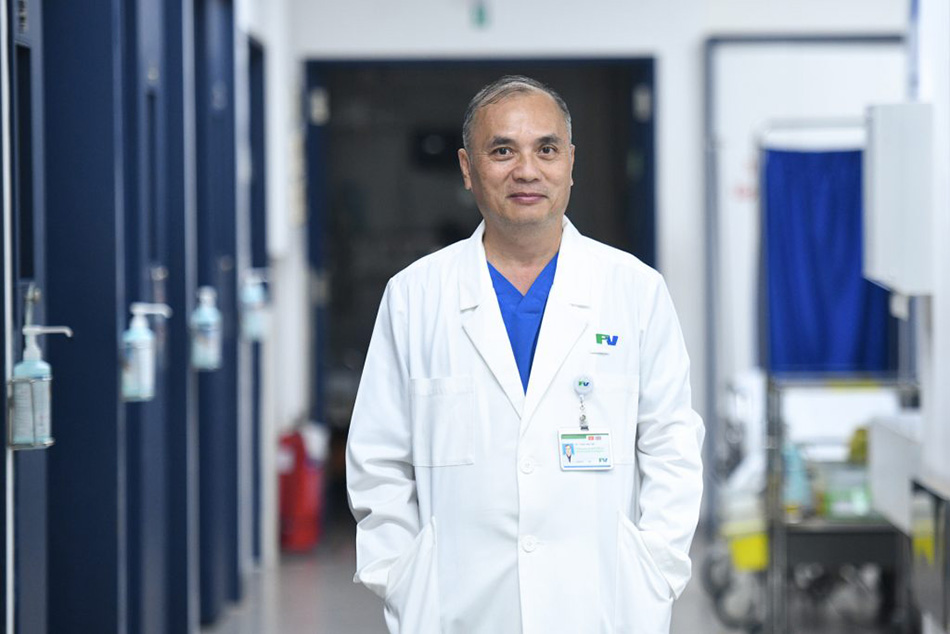
Dr Trinh Van Hai – Head of Accident & Emergency Department, FV Hospital
This predestined connection began when he was a young doctor fresh out of medical school. At that time, the Accident & Emergency Department was always in dire need of doctors, and thus his bond with this role began to form.
“The Accident & Emergency Department always has been considered the ‘frontline,’ constantly under pressure due to the overwhelming number of patients and the urgent nature of the work. Many hospitals have had to staff the emergency department by rotating doctors from other departments.
In the medical training programme, all students (from nurses to doctors) must undergo an internship in the Accident & Emergency Department, not to mention the mandatory minimum of three months of practical experience in the department to obtain a medical license, so after the mandatory internship period, few chose to stay. Yet, here I am, over 30 years later, still working here by choice,” Dr Hai says, humorously.
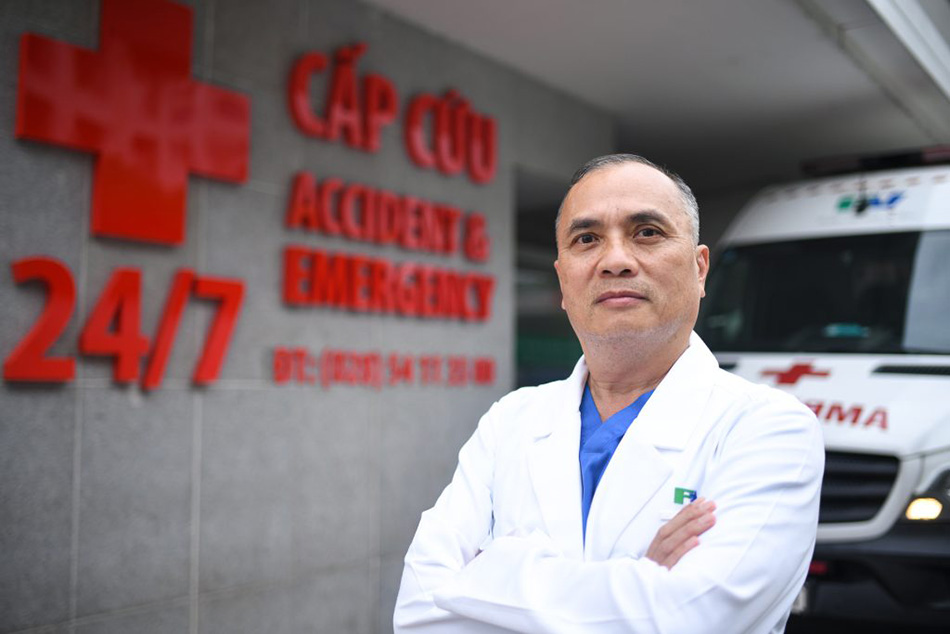
The ‘connection’ with FV began when Dr Hai was just a young doctor, fresh out of medical school
Working in the Accident & Emergency Department requires doctors to have extensive knowledge and solid experience to accurately diagnose and promptly handle a variety of situations concerning a diverse range of patients, from young children to the elderly, infectious diseases, metabolic disorders, medical emergencies to surgical cases and multiple traumas, including acute psychiatric disorders
Over the years, Dr Hai has experienced first-hand the difficulties and pressures faced by many colleagues in public hospitals, dealing with overload and resource shortages.
When he joined FV Hospital in 2003, Dr Hai had a completely different perspective on emergency work. The hospital is equipped with high-quality resources and emphasises both human factors and equipment. More importantly, the hospital has a well-established process for regular quality checks, often daily, to ensure that equipment and machinery operate smoothly during use.
Additionally, the emergency medication inventory is checked daily with a detailed and clear checklist for each type, ensuring that everything is fully stocked and ready for different emergency situations. The Accident & Emergency department staff are thoroughly trained and regularly updated with the latest resuscitation knowledge.
As a hospital that has achieved JCI Certification three times consecutively since 2015, FV Hospital’s Accident & Emergency Department is equipped with a range of advanced facilities, including the admission room, the treatment areas within the department, a decontamination room, a negative pressure room, a minor surgery room, and a resuscitation room. All of these are connected to the main computer in the department’s office, allowing the on-duty staff to closely monitor patients’
Additionally, the hospital utilises the Australian Triage Scale (ATS) to prioritise patients based on the urgency of their clinical condition.
FV Hospital has reduced the waiting time for patient assessments in the Accident & Emergency Department to less than half, in accordance with the Australian triage standards. The hospital’s procedures for emergency care and acute myocardial infarction interventions are also faster than the recommendations set by the American Heart Association (AHA).
Understanding that patients prefer not to stay in the emergency room for too long, FV has set a standard for minimizing the time spent in the emergency room to no more than 4 hours, ensuring that patients feel more comfortable during their treatment.
In addition, FV also emphasizes the prompt management of pain for patients while they wait for diagnosis, using pain assessment scales. This process helps ensure that patients experience the least amount of pain possible in the shortest time.
Additionally, the Accident & Emergency Department is equipped with three fully equipped and modern ambulances, functioning as “mobile intensive care units” to support out-of-hospital emergency services.
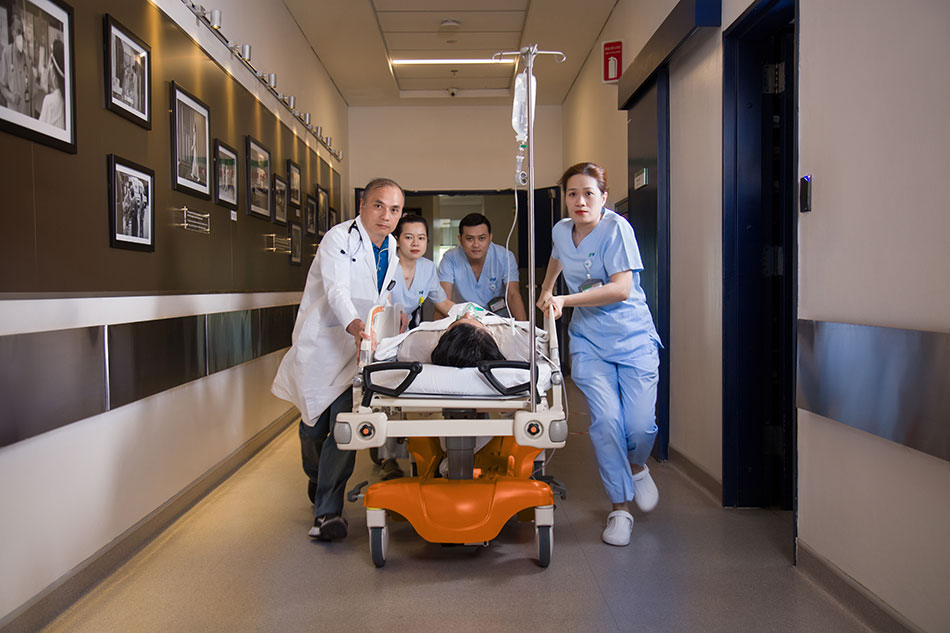
When he joined FV Hospital in 2003, Dr Hai had a completely different perspective on emergency work. The hospital is equipped with high-quality resources and emphasises both human factors and equipment.
The pressure of saving lives at the “frontline” Top of Form
With over three decades in the profession, Dr Hai has faced countless harrowing nights on duty. These include cases of cardiac arrest, life-threatening emergencies involving strokes or heart attacks, severe and complex multiple traumas, and violent injuries.
“One night, during an emergency shift, my team and I were called to a multi-trauma patient from a gas explosion. When we arrived, we saw the person wrapped in a mat, placed on a 1-meter bench in the car. I was surprised by how small an adult could be. As we carried the patient out of the car, I realized that their legs were detached. Internal organs were exposed due to the absence of abdominal skin, and the patient was still faintly begging for help,” Dr Hai recounts.
At the “frontline,” handling every patient’s needs and managing the frustrations and stress of their family members are concurrent tasks. Not only must doctors strive to explain the prognosis, but even in the worst-case scenarios, they work to prevent everyone from being psychologically overwhelmed.
Additionally, it is not uncommon for emotional family members to lose control outside the operating room.
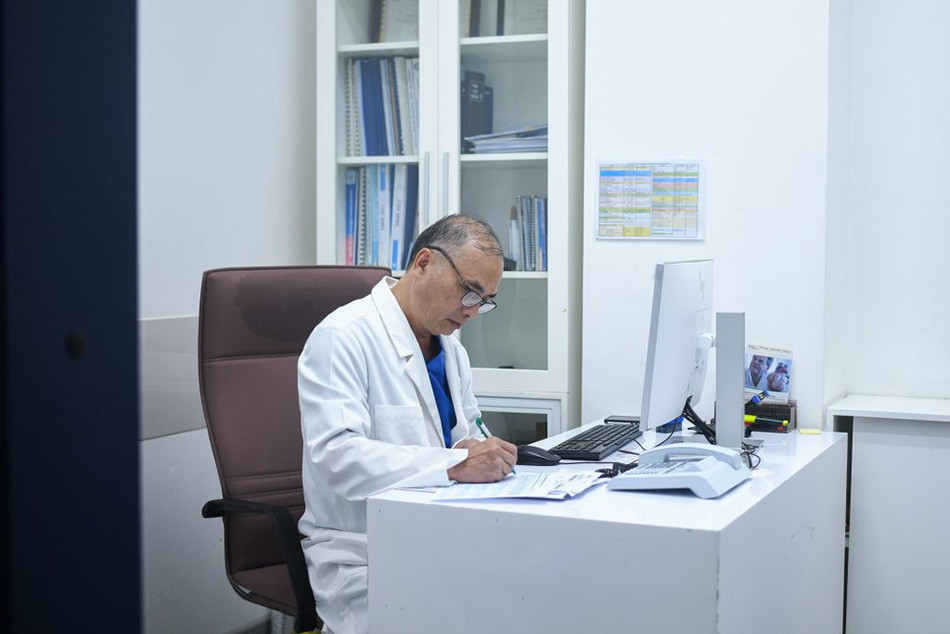
Dr Hai is always gentle with both patients and colleagues
After dedicating nearly half his life to the medical profession, what troubles Dr Hai the most is not the physical exhaustion and dangers that emergency doctors often face, but the feeling of helplessness when making decisions about patients’ lives. Four years later, the haunting memories of COVID-19 have not faded but rather remain a deep, painful imprint on his consciousness, leaving him emotionally choked.
“I remember when the pandemic struck, all hospitals were overwhelmed, and FV was no exception. We lacked the resources to save all critically ill patients. Doctors had to make the tough choice of allocating ventilators to those with a better chance of survival. These were truly the most difficult decisions of my medical career because they directly impacted human lives. At that time, I felt utterly powerless in my role as an emergency physician. Even now, I am haunted by those decisions,” Dr Hai shared, with emotion.
Patients with severe COVID-19 had to endure tremendous difficulties just to get from quarantine zones to the hospital, but many died right at the entrance of the Accident & Emergency Department. The desperate, pleading eyes of COVID-19 patients before they passed away left an indelible mark on my memory. At that moment, I truly felt helpless in my role as an emergency doctor” Dr Hai shared emotionally.
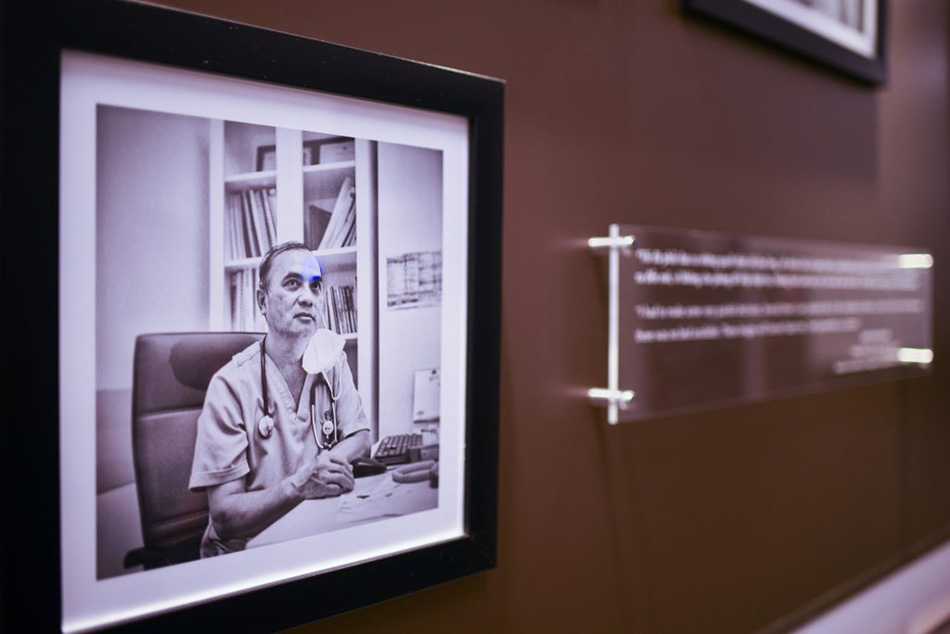
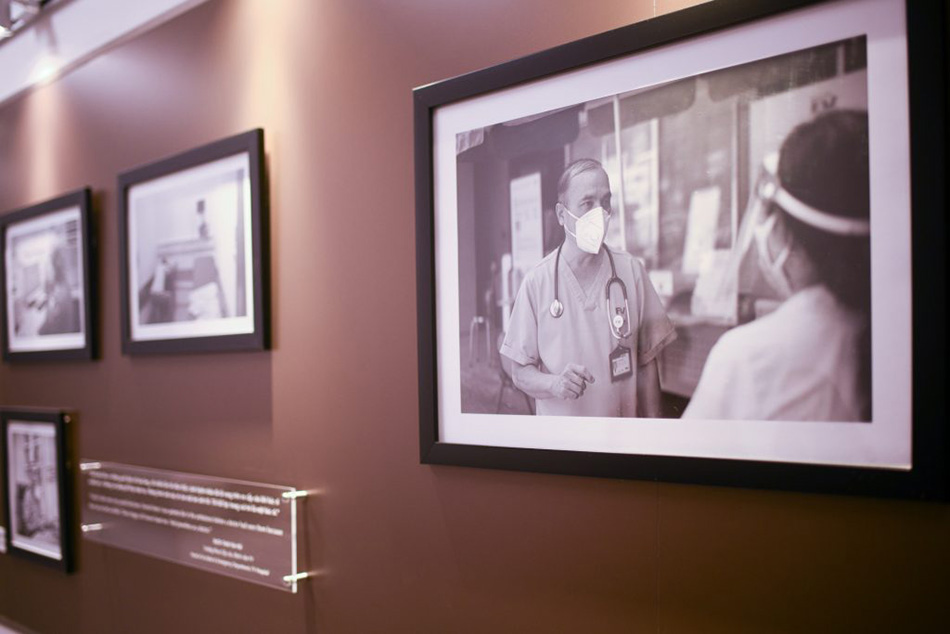
After dedicating nearly half his life to the medical profession, what troubles Dr Hai the most is not the physical exhaustion and dangers that emergency doctors often face, but the feeling of helplessness when making decisions about patients’ lives
Unlike the common perception of emergency departments in large hospitals as places of intense pressure and stress, the first impression upon entering the “frontline” of FV is one of warmth. The way doctors and nurses interact with each other is akin to a family where everyone is cared for and understood. This sense of unity is largely attributed to the leadership of Dr Trinh Van Hai, the “big brother” of the department.
After eight years with the Accident & Emergency Department at FV Hospital, Medical Secretary Ms Trinh Quang Thanh Van views Dr Trinh Van Hai as both serious and having a sense of humour in his work.
“Regardless of the time — day or night — doctors and nurses can always call Dr Hai for consultation on a case, as his phone is always on 24/7, never running out of battery,” she says, humorously.
For Mr Pham Minh Thi, Head Nurse of Accident & Emergency Department, Dr Hai is not only the head of the department but also a teacher for all the nurses at FV Hospital. He conducts training programmes on Basic Life Support (BLS), management of anaphylactic shock, in-hospital emergency procedures (Code Blue), and guides students in clinical skills during their internship in the Accident & Emergency Department
“Sometimes before I even finish explaining, Dr Hai already knows the situation, thanks to his frequent inquiries with the nursing team. His daily check-ins warm everyone’s hearts. Behind his seemingly stern exterior, Dr Hai is well-loved by everyone for his expertise, passion for the profession, and his genuine care for colleagues without regard for hierarchy,” he remarked.



